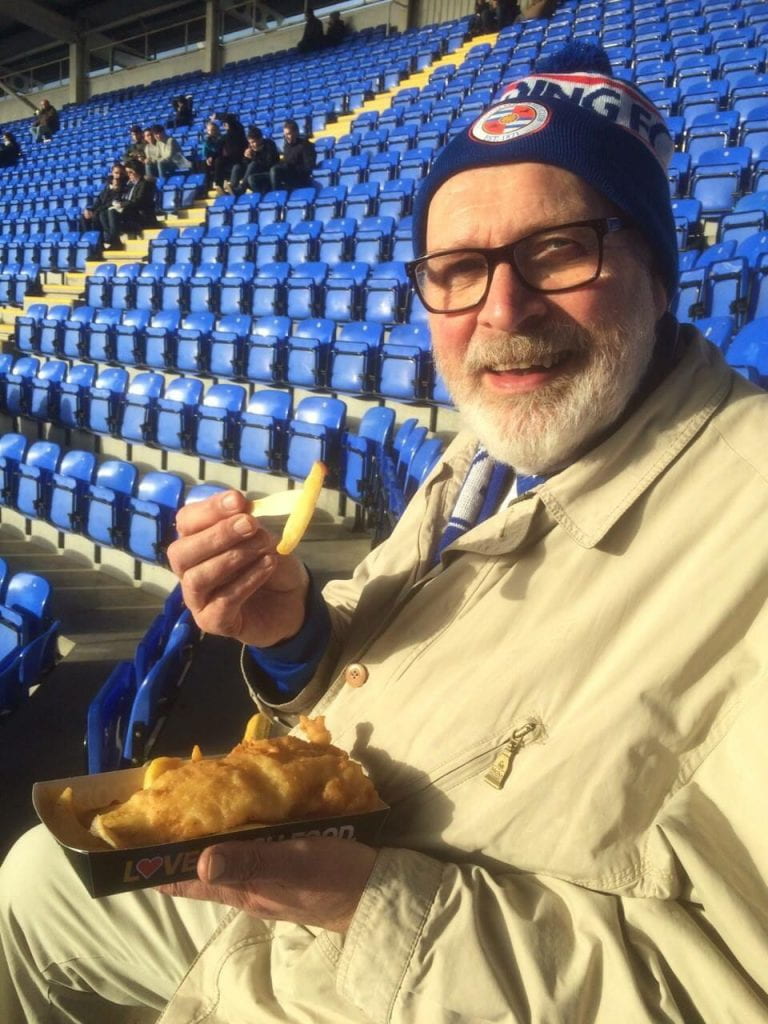While children are going back to school and shops are opening in some European countries, the vulnerable-deemed older people could be stuck in isolation until there’s a vaccine to fight the coronavirus.
By Roosa Welling, Lily Burris and Angel Hui
At 83 years old, Colin South lives alone at his home in Burghfield Common in Reading, Berkshire in the United Kingdom.
“I am in the category which is regarded as being very, very vulnerable and that is people aged 70 and over”, South said. “The instructions to us were that we should self-isolate.”
On Tuesday the 5th of May, the United Kingdom’s coronavirus death toll overtook Italy as the worst-hit European country.
According to South, the general population of the UK are told to stay at home and only leave for limited reasons such as shopping. Those that the British National Health Service (NHS) has qualified as being at maximum risk are told to be “locked down totally”.
That’s exactly what Colin South has been doing for the past seven weeks, alone.
“Insult to basic rights”
As some European countries have already started to carefully lift the COVID-19 restrictions, older people, like South, are still possibly stuck in isolation at least until the end of the year.
“Without a vaccine, we have to limit as much contact as possible with the elderly,” the president of the European Commission, Ursula von der Leyen, recently told the German daily Bild.
According to the Commission’s Joint European Roadmap towards lifting COVID-19 containment measures, the purpose of the restrictions is to protect the older persons and to ease the pressure on health care systems.
“Measures should be envisaged to continue protecting them, while lifting restrictions for other groups,” it’s stated in the roadmap.
However, locking up a group of people for an uncertain amount of time has raised a question of age-discrimination.
“Isolating the elderly is an insult to basic rights, and older persons can be clever enough to make their own decisions,” said Dirk Jarré, the president of European Federation of Older Persons (EURAG).
According to Jarré, we often tend to forget that the older people have intellectual and emotional sense, whereas in African and Asian cultures the elderly are seen as the best of the society.
He also points out that there’s no simple or common way across the EU to define what ‘the elderly’ even means.
“There are different legal definitions, and then you can talk about the ‘old generation’. But how do you define a generation?” Jarré said.
“Illnesses can spike at any age, and vulnerability is not necessarily connected to age,” he added.
The deserted birthday party
Zenobia Pfeiffer, 80, sits in front of the computer with his granddaughter Carlotta, who is ready to translate everything her granny says.
They live in Germany and have been in a lockdown for several weeks, but luckily for Pfeiffer, she doesn’t have to isolate completely alone.
“I live with three family members and a dog, but it’s still hard to cope with everything”, she said. “It feels kind of like being in a prison.”
In Germany, people over 60 are advised not to go to work, stay at home and wear a mask in public places. Even in the small village the family lives in, the police goes around to supervise that all of the strict rules are being followed.
For Zenobia Pfeiffer, the hardest part has been not being able to see her friends and her two other children. Usually, she goes to an elderly club twice a week, but that has been shut down.
“Last week I had my 80th birthday, but nobody could come to celebrate with me”, Pfeiffer said. “I don’t like this at all. I want the old times back.”
What the EU can do?
While health care is mainly the member states’ responsibility, the European Union has been helping to fight the pandemic by providing recommendations, solutions and economical support through funds.
The Commission has taken many actions to support the older citizens, but most of them seem to be somewhat invisible to the ordinary people such as South and Pfeiffer.
A part of the reason for that is, they are simply giving suggestions for the member countries, but there’s no obligation for the countries to obey.
The Commission has for example recommended that older persons, who don’t have smartphones or may not be digital-savvy enough, should be supported with national helplines and standalone devices.
The Commission has also launched joint procurement procedures for medical and protective equipment and mobilised funds to support the most vulnerable people.
According to professor Derek Beach from the Department of Political Science of Aarhus University, the EU has done quite well during the crisis so far, despite some of its actions seeming a bit lightweight.
“It has done everything it can do, or possibly even more. The EU doesn’t have the power to do much else than to give recommendations and try to coordinate between the member states,” Beach said.

EU’s impact on ordinary lives
So far Zenobia Pfeiffer has been satisfied with the EU’s actions, even though not all of them can instantly be seen at the grass-root level.
“I think they’re doing a good job and pulling the same rope here”, she explains. “They have helped the people in Germany to get masks, for example.”
While Colin South isn’t certain that any of the instructions he’s been receiving are coming from the EU, he hopes that the UK is working with those in the medical field across Europe.
“I think we’ve got to see how things work out in other countries, particularly those that have been ahead of us”, South said.
The EU can still give recommendations to the UK through the end of 2020 with the current workings of the Brexit situation.
South thinks most guidance he has received is coming from the British government and the World Health Organization.
“The instructions you get all the time are ‘Stay at home. Stay safe. Save the NHS.’ and that’s fine, but I think people need to know that there has been a plan formulated as to how they’re gonna release us out of this lockdown,” South said.
He hopes that he’ll be able to stop self-isolating by September.
Lack of resources and carers
The uncertain length of the isolation isn’t the only issue older Europeans face during the pandemic.
There have been reports from some hard-hit countries, like Italy, that due to lack of resources, doctors have been forced to prioritize the young and otherwise healthy people over the elderly.
However, the European Pillar of Social Rights stipulates that everyone should have access to quality healthcare. The Commissioner for Equality, Helena Dalli, also stated in April that there’s “no place for ageism in the EU”.
“No-one should be deprioritised from receiving care solely on the basis of age”, Dalli wrote on Twitter.
EURAG’s Dirk Jarré reminds that even in a situation where there isn’t enough equipment or intensive care units, age should not be the only determinant for giving care.
“Some people think that the older ones will die anyway, and we better give the care to the younger ones. That decision should not be left to the doctors or the politicians, but to the older persons themselves,” Jarré said.
According to him, there are also other issues regarding the well-being of the elderly. For example, there’s currently a lack of carers in many countries as a result of carers from for example Poland or Romania going back home.
About 80 percent of older people in Europe are currently staying at home, according to Jarré. One reason for that is that nursing homes are very expensive, and there’s simply not enough spots for everyone.
“On the flip side, nursing homes accommodate many people in small areas, which raises hygiene concerns,” Jarré said.

Hoping and waiting together
While some containment measures are currently being lifted, the finish line of the pandemic is not yet visible for the isolated elderly.
Dirk Jarré calls for the EU and the member states to take the older populations point-of-view into consideration, when planning how to gradually exit the lockdown.
“The decision-makers should recognise and praise the capacity of older persons, since they often have a lot of experience and good judgement,” Jarré said.
Like others, Colin South is just looking forward to the end of the pandemic.
“I’m sure that we will get on top of the virus, we will come up with a vaccine and we’ll be back where we were”, South said. “I think we just got to keep our chins up, keep smiling and keep taking the pills as they say.”
Zenobia Pfeiffer reminds that the elderly and the young people should be cooperating and not going in different directions.
“We’re all in this together”, she said with a smile.